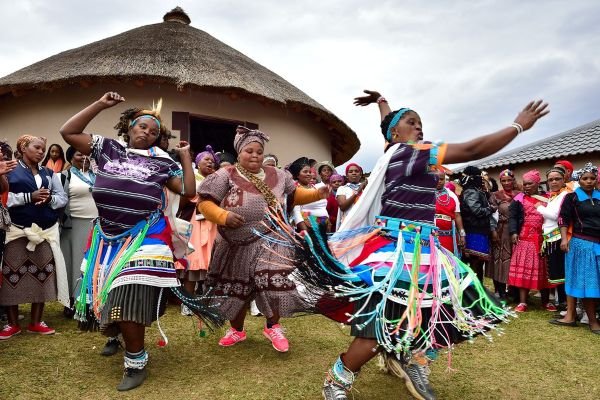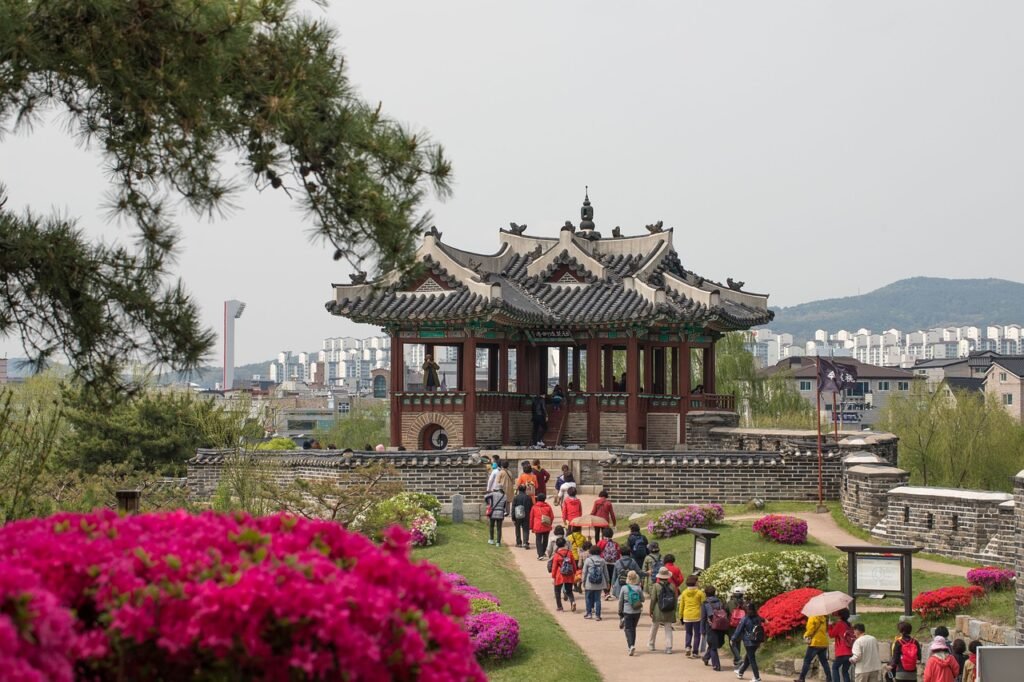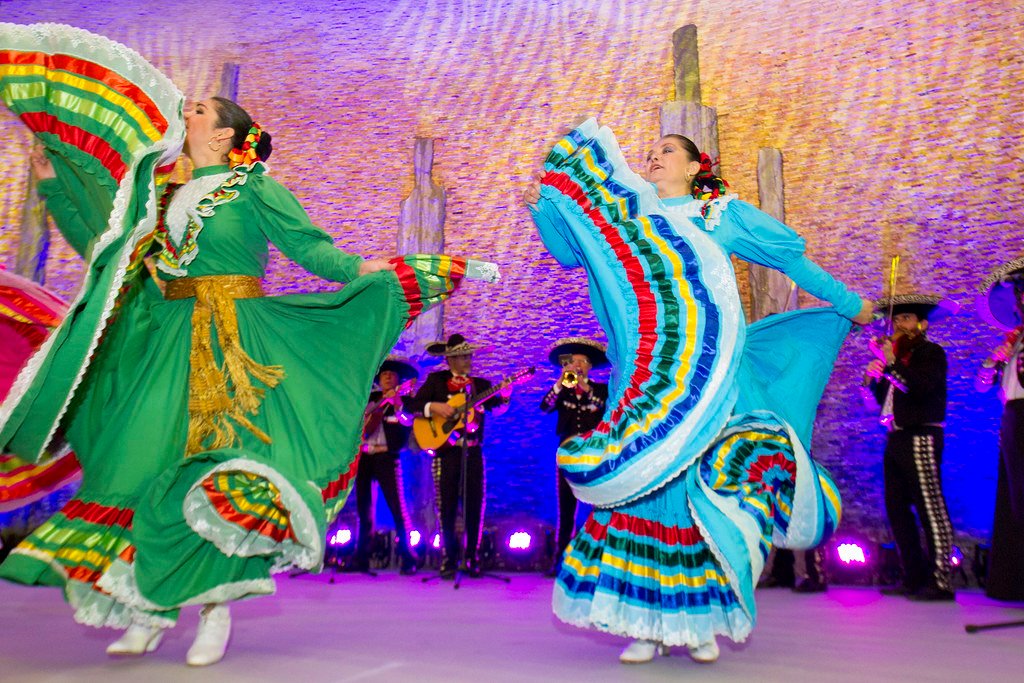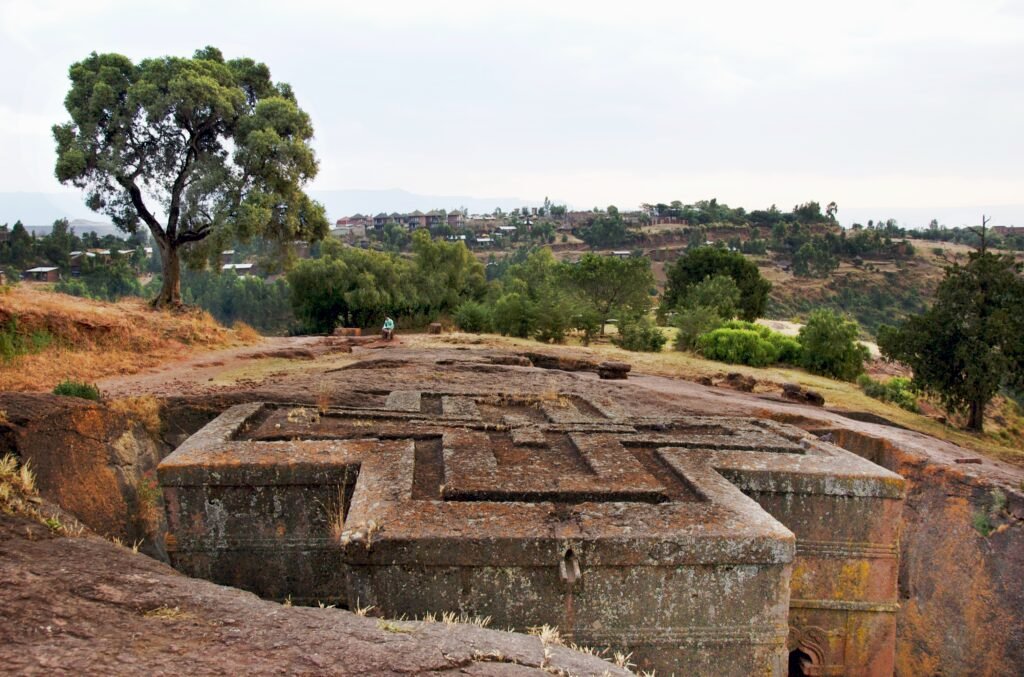Physical Address
304 North Cardinal St.
Dorchester Center, MA 02124

What Does Cultural Travel Mean- Your Ultimate Guide to Enriching Cultural Tourism Experiences

Cultural Travel
Meta Description: Discover what cultural travel means and explore authentic cultural tourism experiences. Find budget-friendly cultural destinations, cheap flights, and hotels that suit your budget for unforgettable cultural journeys.
Have you ever wondered what transforms an ordinary vacation into a life-changing journey? The answer lies in cultural travel, an immersive experience that goes far beyond typical tourist attractions. Cultural travel represents a meaningful way to explore the world, connecting travelers with the authentic heart and soul of destinations through their traditions, history, art, and local communities.
Picture yourself wandering through a bustling medina in Morocco, where the scent of exotic spices mingles with the melodious calls of vendors, or sitting in a family-run trattoria in rural Italy, learning centuries-old pasta-making techniques from a grandmother whose hands tell stories of generations past. These moments define cultural travel, creating memories that resonate long after you return home.
Cultural tourism encompasses various forms of travel focused on experiencing the cultural attributes of a destination. This includes everything from visiting museums and historical monuments to participating in local festivals, learning traditional crafts, or staying with local families. The essence lies in genuine cultural exchange and understanding, making it one of the most rewarding forms of tourism available today.
Modern travelers increasingly seek these authentic experiences over superficial tourist activities. They want to understand how people live, what they believe, and how their communities have evolved over time. This shift has transformed the travel industry, with destinations worldwide developing Cultural Experiences that showcase their unique heritage while supporting local communities.
Cultural tourism differs significantly from conventional travel in its depth and purpose. While traditional tourism might focus on relaxation or adventure, cultural travel prioritizes education, understanding, and meaningful connection with local communities. It’s about discovering hidden gems that reveal the true character of a place.
The World Tourism Organization defines cultural tourism as trips whose primary motivation is to learn, discover, experience, and consume cultural attractions and products in a destination. These attractions range from tangible heritage sites like ancient temples and historic neighborhoods to intangible elements such as traditional music, dance, cuisine, and storytelling traditions.
What makes cultural travel particularly special is its emphasis on authentic experiences. Instead of observing culture from a distance, travelers actively participate in local life. They might join cooking classes led by local chefs, attend traditional music performances in intimate settings, or explore art workshops where craftsmen share techniques passed down through generations.
This approach transforms travelers from mere observers into cultural ambassadors. They return home with deeper appreciation for diversity and often become advocates for the communities they’ve visited. Many find that these experiences challenge their preconceptions and broaden their worldview in unexpected ways.
Cultural travel also supports sustainable tourism practices. By engaging with local communities and supporting traditional crafts and practices, travelers contribute to preserving cultural heritage while providing economic benefits to local populations. This creates a positive cycle where tourism helps maintain traditions that might otherwise disappear.
Cultural tourism manifests in numerous forms, each offering unique opportunities for discovery and learning. Understanding these different types helps travelers choose experiences that align with their interests and create more meaningful journeys.
Heritage Tourism represents perhaps the most recognized form of cultural travel. This involves visiting Historical Wonders such as UNESCO World Heritage Sites, ancient ruins, historic districts, and archaeological sites. From exploring the mysterious temples of Angkor Wat to walking through the cobblestone streets of medieval European cities, heritage tourism connects travelers with humanity’s shared past.
Arts and Crafts Tourism focuses on experiencing local artistic traditions. Travelers might visit pottery villages in Japan, learn traditional weaving techniques in Peru, or explore contemporary art scenes in urban centers. These experiences often include hands-on workshops where visitors create their own pieces under expert guidance, providing tangible memories of their cultural journey.
Culinary Tourism has exploded in popularity as food becomes recognized as a powerful cultural expression. This type involves exploring local cuisines through cooking classes, food tours, market visits, and dining experiences with local families. Each dish tells a story about geography, history, and cultural values, making meals educational adventures.
Festival and Event Tourism allows travelers to witness cultural celebrations in their authentic settings. Whether attending Diwali celebrations in India, participating in harvest festivals in rural communities, or experiencing traditional ceremonies, these events provide windows into local values and community bonds.
Religious and Spiritual Tourism involves visiting sacred sites and participating in spiritual practices. This might include temple visits in Thailand, following pilgrimage routes in Spain, or attending religious ceremonies in various traditions. These experiences often provide profound personal insights alongside cultural understanding.
Living Culture Tourism focuses on contemporary cultural expressions and daily life experiences. This includes staying with local families, participating in community projects, or exploring modern cultural movements such as street art, contemporary music scenes, or innovative cultural spaces that blend tradition with modernity.
The growing popularity of cultural travel reflects deeper changes in how people view travel and personal growth. In our increasingly connected yet fragmented world, many seek authentic experiences that provide meaning beyond mere entertainment or relaxation.
Cultural travel satisfies fundamental human needs for connection and understanding. In an age of digital communication, face-to-face interactions with people from different backgrounds become precious opportunities for genuine human connection. These encounters often challenge stereotypes and create lasting friendships that transcend geographical boundaries.
Many travelers find that cultural experiences provide educational value that surpasses formal learning environments. History comes alive when you walk through ancient streets, art becomes meaningful when you meet the artists, and traditions gain relevance when you participate in their practice. This experiential learning creates lasting memories and deeper understanding than books or documentaries alone.
The search for authenticity drives much of cultural tourism’s appeal. In a world of standardized global brands and homogenized experiences, travelers hunger for genuine, locally-rooted experiences. They want to taste food prepared by grandmothers using family recipes, hear stories told by local historians, and witness traditions practiced by their original communities.
Cultural travel also provides opportunities for personal growth and self-reflection. Experiencing different ways of life challenges assumptions about “normal” behavior and exposes travelers to alternative approaches to common human challenges. Many return home with new perspectives on everything from family relationships to environmental practices.
For families planning trips together, cultural experiences offer educational opportunities that benefit travelers of all ages. Children learn about diversity and tolerance while adults gain historical and social insights. These shared discoveries create strong family memories and often inspire continued learning at home.
Cultural travel doesn’t require enormous budgets to be meaningful and transformative. With careful planning and smart choices, travelers can access rich cultural experiences while managing costs effectively. The key lies in understanding where to allocate resources for maximum cultural impact.
Transportation and Cheap Flights represent significant expenses, but numerous strategies can reduce costs. Booking flights well in advance, traveling during shoulder seasons, and considering alternative airports can yield substantial savings. Many airlines offer promotional fares to culturally rich destinations, particularly during off-peak periods. Flexible travel dates allow travelers to take advantage of these opportunities.
Regional transportation often provides cultural experiences itself. Instead of expensive private transfers, consider local buses, trains, or shared transportation that allows interaction with local communities. These journeys often become memorable parts of the cultural experience while significantly reducing transportation costs.
Budget-Friendly Accommodation options have expanded dramatically with platforms offering homestays, guesthouses, and locally-owned properties. Staying with local families provides immersive cultural experiences while often costing less than commercial hotels. Many traditional accommodations, such as ryokans in Japan or riads in Morocco, offer authentic cultural experiences at reasonable prices when booked directly.
Consider accommodation locations carefully. Properties in residential neighborhoods rather than tourist districts often provide better value while offering authentic glimpses of local life. Walking through neighborhoods where locals live and work provides cultural insights unavailable in tourist zones.
Free and Low-Cost Cultural Activities abound in most destinations. Many museums offer free admission days, public squares host cultural performances, and religious sites welcome respectful visitors without charge. Local festivals and markets provide rich cultural experiences without admission fees.
Walking tours led by local guides often operate on tip-based systems, making them accessible regardless of budget. These tours frequently reveal Hidden Gems that independent travelers might miss while providing historical and cultural context from knowledgeable locals.
Local Dining Strategies can significantly impact both budget and cultural authenticity. Street food and local markets offer delicious, authentic meals at fraction of restaurant prices. Cooking classes, while initially more expensive, teach skills that enhance the entire trip and provide lasting memories.
Shopping at local markets for snacks and simple meals reduces food costs while providing cultural interactions with vendors. Many destinations offer traditional coffee houses or tea shops where locals gather, providing cultural experiences for the price of a beverage.
The world overflows with destinations offering profound cultural experiences, each providing unique insights into human creativity, tradition, and community life. These destinations represent just a sampling of the countless places where travelers can engage meaningfully with local cultures.
Southeast Asia offers incredible cultural diversity within relatively compact geographical areas. Thailand combines ancient Buddhist traditions with vibrant contemporary culture, while Vietnam provides glimpses into colonial history alongside dynamic modern communities. Indonesia‘s thousands of islands each maintain distinct cultural traditions, from Balinese Hindu ceremonies to traditional crafts in Java.
Budget-conscious travelers find Southeast Asia particularly appealing due to low living costs and extensive infrastructure for independent travel. Local transportation, accommodation, and dining options allow deep cultural immersion without significant financial investment.
India presents perhaps the world’s most complex and rewarding cultural tapestry. From the spiritual centers of Varanasi to the artistic traditions of Rajasthan, India offers overwhelming cultural richness. The subcontinent’s diversity means travelers can experience dozens of distinct cultures within a single country.

India’s cultural experiences range from palace visits and classical music performances to participation in religious festivals and traditional craft workshops. The country’s well-developed tourism infrastructure includes options for every budget level, making cultural exploration accessible to various traveler types.
Latin America combines indigenous traditions with colonial heritage and contemporary cultural movements. Peru offers everything from ancient Incan sites to vibrant contemporary art scenes in Lima. Mexico’s cultural wealth spans thousands of years, from pre-Columbian civilizations to dynamic modern communities maintaining traditional practices.

Mexico’s cultural
Cultural travelers in Latin America can participate in traditional festivals, learn ancient crafts, explore colonial architecture, and experience how indigenous communities maintain their traditions in modern contexts. The region’s relatively low costs make extended cultural exploration feasible for budget-conscious travelers.
Europe provides unparalleled historical depth and cultural sophistication. Each country maintains distinct traditions while participating in broader European cultural movements. Eastern European destinations offer particularly good value for cultural travelers, with rich traditions, excellent local cuisine, and affordable accommodation options.
European cultural experiences range from visiting world-class museums to participating in local festivals, exploring traditional crafts, and experiencing regional culinary traditions. The continent’s excellent transportation infrastructure makes multi-country cultural journeys feasible and affordable.

European cultural experiences world-class museums
Africa offers some of the world’s most authentic and least commercialized cultural experiences. From Morocco’s medinas to Ethiopia’s ancient churches, Africa provides cultural encounters that remain largely unchanged by mass tourism. Traditional music, dance, crafts, and storytelling traditions thrive throughout the continent.

Ethiopia’s ancient churches
Many African destinations offer opportunities to engage with communities maintaining traditional lifestyles while adapting to modern challenges. These experiences provide profound insights into human resilience and creativity while supporting community development through responsible tourism.
Successful cultural travel requires understanding and respecting local customs, traditions, and social norms. This respect not only ensures positive interactions with local communities but also enhances the cultural learning experience for travelers.
Dress Codes and Appearance vary significantly across cultures and contexts. Religious sites typically require modest clothing covering shoulders and legs, while some communities have specific expectations about colors or styles. Researching destination-specific dress expectations prevents uncomfortable situations and demonstrates respect for local values.
Many cultures have particular sensitivities about footwear in religious or domestic spaces. Understanding when to remove shoes, how to store them appropriately, and what constitutes appropriate foot covering shows cultural awareness and consideration.
Communication Styles and Social Interactions differ dramatically across cultures. Some societies value direct communication while others prefer indirect approaches. Understanding local greeting customs, personal space preferences, and conversation topics helps create positive interactions with community members.
Learning basic phrases in local languages, even simple greetings and thank-you expressions, demonstrates respect and often opens doors to deeper cultural interactions. Many locals appreciate visitors’ efforts to communicate in their language, regardless of pronunciation accuracy.
Photography and Privacy Considerations require particular sensitivity in cultural contexts. Many communities have restrictions about photographing people, religious ceremonies, or sacred sites. Always asking permission before photographing individuals shows respect and often leads to more meaningful interactions.
Some cultures consider cameras intrusive in certain contexts, while others welcome photography as a way to share their traditions. Understanding these preferences and following local guidance ensures respectful cultural engagement.
Religious and Sacred Space Protocols demand careful attention and research. Each tradition has specific expectations about behavior in sacred spaces, from silence requirements to participation protocols. Observing these guidelines shows respect for deeply held beliefs and often allows access to profound cultural experiences.
Gift-Giving and Exchange Customs play important roles in many cultures. Understanding appropriate gifts, presentation methods, and reciprocity expectations enhances cultural interactions and prevents misunderstandings. Some cultures have specific taboos about certain gifts or colors that travelers should understand.
Maximizing cultural travel experiences requires intentional approaches to engagement, learning, and reflection. The most rewarding cultural journeys result from active participation rather than passive observation.
Pre-Trip Research and Preparation significantly enhance cultural understanding during travel. Reading about destination history, current events, cultural practices, and social issues provides context that deepens on-ground experiences. Understanding historical background helps travelers appreciate cultural sites and traditions they encounter.
Learning about contemporary challenges facing local communities helps travelers engage more thoughtfully with current realities rather than romanticized versions of culture. This preparation allows for more meaningful conversations with locals and better understanding of observed practices.
Language Learning and Communication efforts, even basic ones, dramatically improve cultural interactions. Simple greetings, numbers, and courtesy phrases demonstrate respect and often encourage locals to share more about their culture. Many language learning apps provide destination-specific phrases that prove useful in cultural contexts.
Non-verbal communication understanding proves equally important. Gestures, personal space preferences, and social cues vary significantly across cultures. Observing and adapting to local communication styles shows cultural sensitivity and facilitates better interactions.
Engaging with Local Communities requires moving beyond tourist zones and structured activities. Visiting local markets, attending community events, using public transportation, and shopping in neighborhood stores provide authentic cultural encounters unavailable in tourist-focused environments.
Many destinations offer opportunities to participate in community projects, volunteer with local organizations, or join cultural classes aimed at local residents. These activities provide deeper cultural immersion while contributing positively to visited communities.
Documentation and Reflection help process and retain cultural experiences. Keeping travel journals, collecting local artifacts, or creating photo essays helps travelers reflect on their experiences and share insights with others. This documentation process often reveals cultural lessons that weren’t immediately apparent during initial encounters.
Regular reflection time during cultural trips allows travelers to process new experiences and identify learning opportunities. Many find that cultural travel challenges preconceptions and requires mental adjustment time to fully appreciate encountered perspectives.
Successful cultural travel requires practical preparation alongside cultural sensitivity. These concrete strategies help travelers navigate cultural experiences more effectively while maximizing learning opportunities.
Budgeting for Cultural Experiences involves understanding that some of the most meaningful cultural encounters cost little or nothing, while others may require significant investment. Prioritizing cultural activities over luxury amenities allows budget allocation toward experiences that provide lasting value.
Many cultural sites offer multiple ticket options, from basic admission to comprehensive packages including guided tours, workshops, or special access. Evaluating these options based on cultural learning potential rather than simple cost helps optimize experience value.
Timing and Seasonal Considerations significantly impact cultural travel experiences. Many cultural events and festivals occur during specific seasons, while some traditional practices vary with agricultural or religious calendars. Researching optimal timing for desired cultural experiences helps ensure availability and authenticity.
Weather considerations affect both comfort and cultural activity availability. Some traditional practices or cultural sites may be inaccessible during certain seasons, while others become more vibrant during specific weather conditions.
Health and Safety in Cultural Contexts requires understanding local health practices, food safety standards, and medical facilities. Many cultural experiences involve trying local foods, participating in physical activities, or visiting remote locations where standard tourist infrastructure may be limited.
Understanding local emergency procedures, medical facilities, and communication methods ensures travelers can handle unexpected situations while pursuing cultural experiences. Travel insurance should cover cultural activities and potential medical needs in visited destinations.
Technology and Cultural Travel can enhance or detract from cultural experiences depending on usage. Translation apps, cultural guide applications, and communication tools can facilitate deeper cultural engagement, while excessive device usage may interfere with authentic cultural interactions.
Many cultural sites have specific technology policies, from photography restrictions to device-free zones designed to maintain sacred or contemplative atmospheres. Understanding and respecting these policies enhances both personal experience and community relations.
Sustainable Cultural Tourism Practices ensure that cultural travel benefits visited communities while preserving traditions for future generations. This includes supporting locally-owned businesses, respecting cultural intellectual property, and engaging with communities in ways that empower rather than exploit.
Choosing tour operators and accommodations that employ local staff, source materials locally, and contribute to community development helps ensure that cultural tourism provides economic benefits to cultural practitioners and their communities.
Understanding the difference between cultural appreciation and cultural appropriation helps travelers engage respectfully with traditions while avoiding harmful practices that trivialize or misrepresent encountered cultures.
Experienced cultural travelers develop sophisticated approaches to maximizing their cultural learning and community engagement. These advanced strategies help create more profound and mutually beneficial cultural exchanges.
Building Long-Term Cultural Relationships involves maintaining connections with communities and individuals encountered during cultural travels. Many travelers develop ongoing relationships with local guides, artisans, or families that provide deeper cultural insights over time.
These relationships often evolve into collaborative projects, volunteer opportunities, or cultural exchange programs that benefit both travelers and local communities. Some travelers return regularly to the same communities, developing deeper understanding through repeated exposure and relationship building.
Cultural Travel as Education can be structured to provide formal learning credits or professional development opportunities. Many universities and cultural institutions offer study abroad programs, cultural immersion courses, or professional development trips that combine cultural exposure with academic or career advancement.
Independent travelers can create their own educational frameworks by setting learning objectives, conducting research projects, or developing cultural competency skills that benefit their professional or personal development.
Contributing to Cultural Preservation allows travelers to actively support the maintenance and transmission of cultural traditions. This might involve purchasing traditional crafts directly from artisans, supporting cultural education programs, or participating in documentation projects that preserve cultural knowledge.
Many cultural sites and communities welcome volunteers who can contribute skills, resources, or labor to preservation efforts. These opportunities provide deep cultural immersion while creating lasting positive impact on visited communities.
Cultural Travel Photography and Storytelling can help preserve and share cultural experiences while respecting community preferences about representation. Developing skills in cultural photography, storytelling, or digital media creation allows travelers to become cultural ambassadors who share authentic representations of encountered cultures with broader audiences.
Understanding ethical considerations in cultural representation helps travelers avoid perpetuating stereotypes or misrepresentations while creating compelling content that honors encountered communities and traditions.
Creating meaningful cultural travel experiences requires systematic planning that balances structure with flexibility. This comprehensive approach ensures travelers access desired cultural experiences while remaining open to unexpected discoveries.
Destination Research and Selection begins with identifying cultural interests and learning objectives. Travelers might focus on specific historical periods, artistic traditions, religious practices, or contemporary cultural movements. This focus helps narrow destination choices and identify specific sites, communities, or experiences to prioritize.
Evaluating destination infrastructure, safety conditions, and accessibility helps ensure chosen locations can accommodate desired cultural activities within traveler capabilities and constraints. Planning Travel Trips requires balancing ambitious cultural goals with practical limitations.
Creating Cultural Itineraries involves identifying must-see cultural sites while allowing time for spontaneous discoveries. The most rewarding cultural itineraries balance structured activities with unplanned exploration time that allows for serendipitous cultural encounters.
Building relationships with local cultural experts, guides, or community organizations before arrival provides access to experiences unavailable to independent travelers. Many communities offer cultural immersion programs that provide structured opportunities for meaningful cultural engagement.
Accommodation and Transportation Choices significantly impact cultural experience quality. Staying in locally-owned accommodations, using public transportation, and dining in community establishments provide ongoing cultural immersion opportunities while supporting local economies.
Some cultural destinations offer unique accommodation options such as monastery stays, traditional family homes, or cultural retreat centers that provide immersive cultural experiences as part of the lodging experience.
Cultural Activity Booking and Preparation may require advance planning for popular sites, seasonal events, or limited-capacity experiences. Understanding booking procedures, payment methods, and cancellation policies helps secure desired cultural activities while maintaining travel flexibility.
Preparing for cultural activities through background reading, language study, or skill development enhances experience quality and demonstrates respect for encountered traditions and communities.
Cultural travel provides excellent opportunities for family bonding and educational experiences that benefit travelers of all ages. However, successful Family Trip Planning for cultural destinations requires special considerations to ensure activities engage all family members while respecting cultural contexts.
Multi-Generational Cultural Travel can create profound shared experiences that bridge generational gaps while exposing family members to diverse perspectives. Grandparents often bring historical context to cultural sites, while children provide fresh perspectives and natural curiosity that enhances cultural discoveries for entire families.
Planning cultural activities that accommodate different physical capabilities, attention spans, and interests requires creative approaches and flexible scheduling. Many cultural sites offer family-friendly programs designed to engage visitors of all ages through interactive experiences and age-appropriate educational content.
Cultural Travel with Children requires additional preparation to ensure experiences remain educational and enjoyable rather than overwhelming or inappropriate. Children often connect naturally with local communities and can serve as cultural ambassadors who facilitate interactions between families and local residents.
Many cultures have specific customs regarding children that visiting families should understand. Some communities welcome child participation in cultural activities while others maintain restrictions based on age, gender, or cultural tradition.
Educational Cultural Travel can provide structured learning experiences that complement formal education while exposing students to real-world applications of classroom knowledge. History comes alive when students walk through ancient sites, language learning accelerates through immersion experiences, and cultural studies gain relevance through direct community engagement.
Student travel groups require additional safety considerations and cultural sensitivity training to ensure positive interactions with visited communities while maintaining educational value and group cohesion.
Accessible Cultural Travel ensures that travelers with physical limitations can participate meaningfully in cultural experiences. Many historical sites and cultural attractions have improved accessibility while maintaining authentic character, though advance research and planning remain essential.
Understanding local accessibility resources, transportation options, and accommodation features helps ensure that all travelers can participate in desired cultural activities regardless of physical capabilities or special needs.
Cultural travel continues evolving as technology, global connectivity, and changing traveler expectations reshape how people engage with different cultures. Understanding these trends helps travelers prepare for emerging opportunities while anticipating potential challenges.
Technology Integration in cultural travel ranges from virtual reality experiences that provide historical context to augmented reality applications that overlay cultural information onto physical sites. Translation technology improvements facilitate deeper cross-cultural communication while digital platforms connect travelers with local cultural experts and authentic experiences.
However, excessive technology use can interfere with authentic cultural immersion. The most successful cultural travelers learn to use technology as a tool for enhancement rather than replacement of direct cultural engagement.
Sustainable Cultural Tourism increasingly emphasizes community benefit and cultural preservation over simple economic impact. Travelers seek experiences that support local communities while preserving traditional practices for future generations rather than exploiting cultures for short-term tourism revenue.
This shift creates opportunities for more meaningful cultural exchanges while requiring greater traveler responsibility and cultural sensitivity. Understanding sustainable tourism principles helps travelers make choices that benefit encountered communities while enhancing personal cultural learning.
Emerging Cultural Destinations offer opportunities to experience cultures before mass tourism impacts alter their authentic character. However, travelers bear responsibility for engaging respectfully with communities that may have limited experience with international visitors.
Early cultural travelers to emerging destinations can help establish positive precedents for future tourism development while accessing some of the world’s most authentic and unspoiled cultural experiences.
Cultural travel represents far more than sightseeing or vacation entertainment. It offers transformative opportunities for personal growth, cross-cultural understanding, and meaningful community engagement that benefit both travelers and visited communities when approached with respect, preparation, and genuine curiosity.
The world overflows with cultural treasures waiting to be discovered by thoughtful travelers. From ancient traditions maintained in remote villages to vibrant contemporary cultural movements in urban centers, every destination offers unique insights into human creativity, resilience, and community life.
Whether your interests lie in historical exploration, artistic discovery, culinary adventures, or spiritual journeys, cultural travel provides pathways to profound experiences that expand worldviews while creating lasting memories. The key lies in approaching cultural travel with humility, respect, and genuine desire to learn from encountered communities.
Ready to embark on your own cultural adventure? Start planning your transformative journey today by exploring our comprehensive destination guides and cultural experience recommendations. Discover how cultural travel can enrich your life while supporting the preservation of the world’s incredible cultural diversity.
Visit Travel Go Easy for personalized cultural travel planning, budget-friendly accommodation options, and expert guidance on creating meaningful cultural experiences that match your interests, budget, and travel style.
What is the difference between cultural tourism and regular tourism? Cultural tourism focuses on learning about and experiencing local traditions, history, art, and community life, while regular tourism may prioritize relaxation, entertainment, or adventure without deep cultural engagement.
How much should I budget for cultural travel experiences? Cultural travel costs vary widely depending on destination and experience type. Many meaningful cultural activities cost little or nothing, while others require significant investment. Budget $50-200 per day for moderate cultural travel experiences.
Do I need special preparation for cultural travel? Yes, successful cultural travel benefits from research about local customs, basic language learning, understanding cultural etiquette, and preparing appropriate clothing for cultural and religious sites.
Can families with children engage in cultural travel? Absolutely! Cultural travel provides excellent educational opportunities for families. Many destinations offer family-friendly cultural programs designed to engage travelers of all ages.
How do I find authentic cultural experiences rather than tourist performances? Seek recommendations from local residents, stay in locally-owned accommodations, participate in community events, and work with cultural guides who have deep community connections rather than commercial tour operators.
What should I pack for cultural travel? Pack modest clothing suitable for religious sites, comfortable walking shoes, a respectful camera approach, basic language learning materials, and gifts appropriate for local customs.
Keywords targeted in this article: Cultural travel, cultural tourism, cultural experiences, cultural journey, heritage tourism, authentic experiences, budget-friendly cultural destinations, cheap flights, hotels that suit your budget, hidden gems, cultural adventures, traditional practices, local communities, cultural preservation, sustainable tourism, family cultural travel, cultural etiquette, cultural immersion, authentic cultural experiences, cultural destinations.
This article is exclusive content for Travel Go Easy (travelgoeasy.net) and is protected from copying and unauthorized use. All rights reserved.
Start planning your transformative journey today by exploring our comprehensive destination guides and cultural experience recommendations. Discover how cultural travel can enrich your life while supporting the preservation of the world’s incredible cultural diversity.





[…] Get Started Now […]
[…] Get Started Now […]